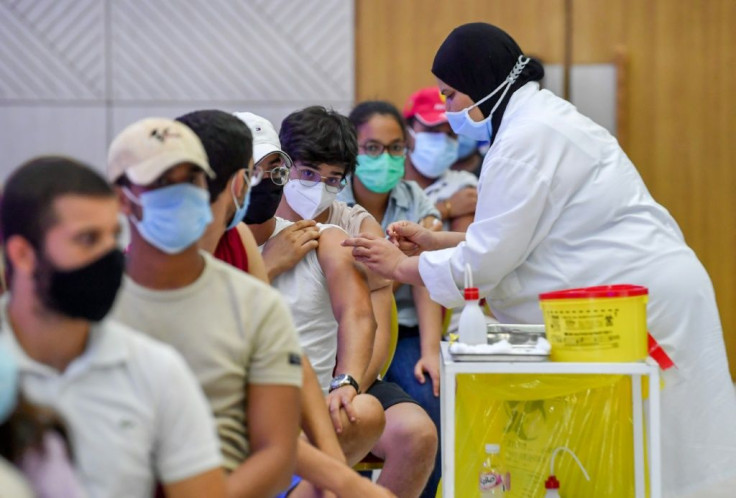Here's Why You Shouldn't Skip Your Second Dose Of COVID-19 Vaccine
KEY POINTS
- The second COVID-19 vaccine jab triggers the mobilization of a group of first-responder cells that are normally scarce, a study found
- The group of cells provides additional protection against SARS-CoV-2
- Researchers said the cells increased 100-fold in those who received their second Pfizer vaccine dose
Around 58% of Americans have received at least one dose of the COVID-19 vaccine, with less than half of the population fully vaccinated from the virus. For those who think one jab will cover it, a study has revealed what the second dose of the vaccine can do, which the first dose can't.
Researchers from the Stanford University School of Medicine found that the second dose of the COVID-19 vaccine brings a powerful boost to a part of the immune system that provides broad antiviral protection, strongly suggesting that it should not be skipped.
The study, published earlier this month in the journal Nature, focused on how the Pfizer-BioNTech vaccine affects the numerous components of the immune response. The mRNA vaccine is 95% effective at preventing COVID-19 infection in those who received two doses, according to its clinical trials. The Moderna jab, also an mRNA vaccine, has a 94.1% efficacy rate.
"This is the first time RNA vaccines have ever been given to humans, and we have no clue as to how they do what they do: offer 95% protection against COVID-19," said Dr. Bali Pulendran, professor of pathology and microbiology and immunology, according to a press release.
"Despite their outstanding efficacy, little is known about how exactly RNA vaccines work. So we probed the immune response induced by one of them in exquisite detail," he continued.
For the study, the researchers analyzed blood samples from individuals inoculated with the Pfizer vaccine. They found that the first dose of the vaccine increases the body's SARS-CoV-2 antibody levels, but not nearly as much as the second shot does.
"The second shot has powerful beneficial effects that far exceed those of the first shot," Pulendran explained. "It stimulated a manifold increase in antibody levels, a terrific T-cell response that was absent after the first shot alone, and a strikingly enhanced innate immune response."
The second shot triggered the mobilization of a newly discovered group of first-responder cells that are normally scarce, the study found.
According to a recent vaccine study led by Pulendran, these cells — a small subset of monocytes that have high levels of antiviral genes — do not actively respond to a COVID-19 infection, but the Pfizer vaccine was able to induce them.
Despite consisting only 0.01% of all circulating blood cells before inoculation, the cells increased 100-fold in those who received their second Pfizer vaccine jab. According to Pulendran, they became more antiviral rather than inflammatory and seemed to be able to protect the vaccine recipient against diverse viral infections.
"The extraordinary increase in the frequency of these cells, just a day following booster immunization, is surprising," Pulendran said. "It's possible that these cells may be able to mount a holding action against not only SARS-CoV-2 but against other viruses as well."

© Copyright IBTimes 2025. All rights reserved.





















